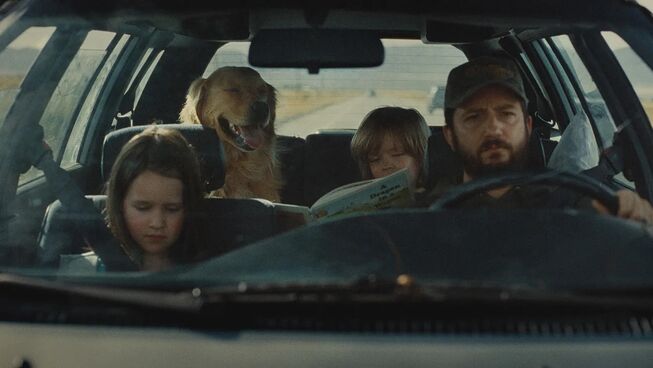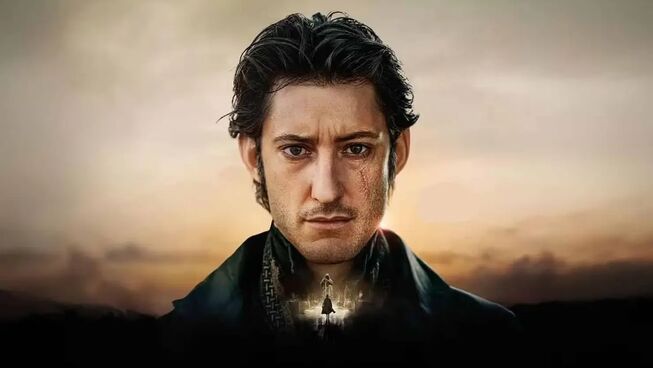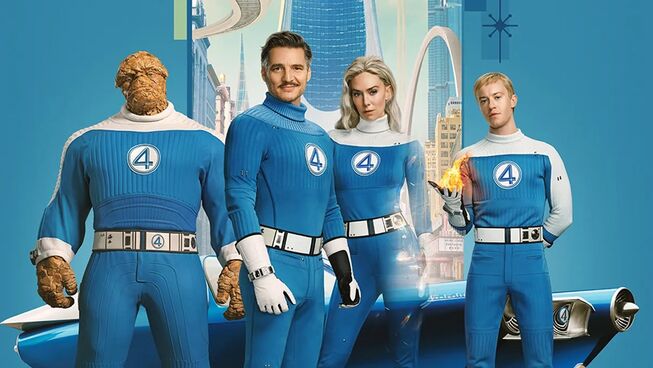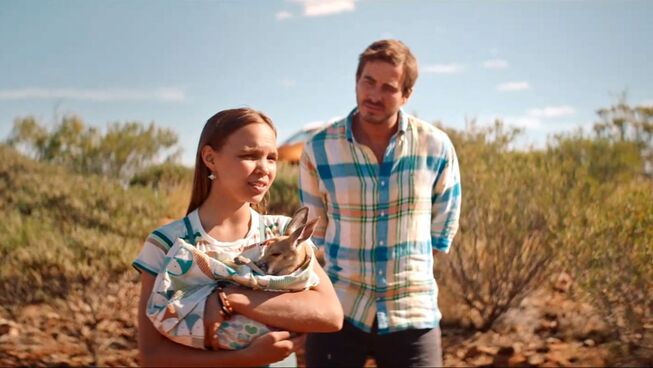
⭐️ ⭐️ ⭐️ ⭐️ (out of 5)
In 2008, Nebraska introduced a ‘safe haven’ law that enabled parents to abandon and surrender their child to social services if they felt they could not support them. However, the law did not have an upper age limit… and by the time that lawmakers could pass an amendment to prevent non-infants being abandoned, 35 children had been left at hospitals in the state – all of them older than infants. It’s this very real heartbreak that sits as the context behind Cole Webley’s feature debut, Omaha.
Evicted from his home and reeling from the loss of his partner, a single dad (John Magaro) bundles his two children, nine-year-old Ella (Molly Belle Wright) and six-year-old Charlie (Wyatt Solis), into his car for a journey from Utah to Nebraska. Between the games, rest stops, and push-starts that punctuate the drive, the perceptive young Ella begins to sense that their trip may contain a hidden purpose, and as the single father’s cross-state trip continues, a slowly unfolding secret heartbreakingly emerges.
Some films shout, others whisper. Omaha whispers until the silence becomes deafening. Whilst the film takes the form of a family road trip, it isn’t about sightseeing or adventure—it’s about survival and a father with two children trying to outrun something we never quite see. The result is a film that is tender, devastating, and emotionally unrelenting. John Magaro anchors the story as a father whose life is unravelling before our eyes. He doesn’t storm or rage—he carries grief like a quiet shadow. Every pause, every downcast glance, every breath seems weighted with a pain too heavy to name. It’s a remarkable performance of restraint, and one that lingers long after the credits. Alongside him are Molly Belle Wright (Ella) and Wyatt Solis (Charlie). Both young actors deliver performances that never feel forced or acted. They simply are. The children absorb their father’s grief while trying to cling to their own innocence, and the result is heartbreakingly authentic. Together, the three form a fragile family unit that feels lived-in, tender, and yet on the brink of collapse. He gives us a man stripped bare, and the children reveal the cost of grief with heartbreaking clarity. It is rare to see such understated power in cinema today.
Director Cole Webley also resists the temptation to spell things out. Instead of exposition, we are offered fragments: supermarkets with barren shelves, gas stations that feel almost abandoned, car rides that stretch into eternity. You sense something is wrong, long before you can articulate it. The slow-burn storytelling allows dread to creep in at the edges, until the final moments arrive—and they devastate. This is not a film that hands you neat answers or emotional catharsis. It’s a film that asks you to sit in grief, to wrestle with uncertainty, and to experience the fragility of love when the world feels unsafe. Omaha is not for everyone. It is slow, quiet, and unflinching. But for those willing to sit with its silences, it offers one of the most powerful meditations on grief and love in recent cinema. It’s not a film you simply watch—it’s a film you carry with you.
Reel Dialogue and Third Space have entered the world of YouVersion: Download the app, dive into the plans, and engage with the Bible in a fresh and exciting way.
Reel Dialogue: The Father’s Heart breaks
Why does a story like Omaha matter? Because it touches something deeply human. We know what it is to grieve, to carry burdens we can’t voice, to want to protect those we love even when we ourselves are breaking. And it raises the question: How do we endure grief when it threatens to undo us?
Grief can silence us, isolate us, and leave us feeling like shadows of ourselves. Yet, the Bible offers a God who meets us in that silence: “He heals the brokenhearted and binds up their wounds” (Psalm 147:3). Whilst the father in Omaha ultimately let’s go of his children, the Christian experience is of a Father who clings to us in our darkest valleys—refusing to let go, even when everything else falls apart.










